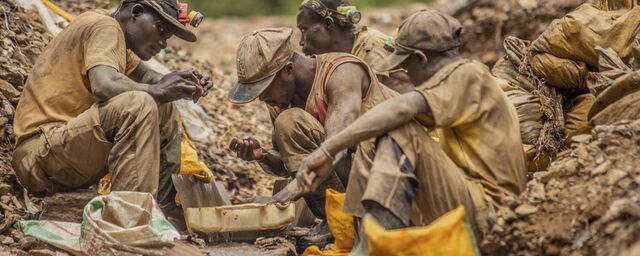Africa should increase its influence in the sectors it provides raw materials to elevate its population out of poverty and embrace its future in a low-carbon global environment, as emphasized by a prominent environmental advocate from the continent.
Wanjira Mathai, the managing director for Africa and global partnerships at the World Resources Institute thinktank also said much more of what the continent produces must be processed and made use of close to where it is produced if the world is to shift to a low-carbon footing.
She noted that if almost all of Africa’s resource processing is done abroad, few economic and social benefits will accrue to Africans themselves.
READ MORE: Dr Arikana, Enabulele, Others Team Up For Ubuntu Awakening Summit
The Kenyan environmentalist suggested, for example, that cocoa beans could be processed into cocoa butter in the African countries where they are grown rather than being exported in their raw form.
By moving up the value chain, we will be able to generate much more income,” she said.
Furthermore, implementing localization in the production process will effectively decrease the carbon footprint. This is because transporting raw materials across the globe results in significantly higher carbon emissions compared to transporting a product that has undergone further processing, as highlighted by Mathai.
“And what it does is create an economy that is much greater than depending on the charity of others,” she opined.
Mathai also said that rich countries should channel the climate finance they have promised to poorer countries into projects like clean energy; otherwise, African countries will turn to fossil fuels, where investors are looking to expand.
It is also important to help people prepare for the effects of the climate crisis, and the best way to do that is to make Africans more financially resilient, she concluded.
More
Africa has vast potential for generating renewable energy, from the wind and sun. This should encourage investors to site their industries there, near these abundant low-carbon power sources, she added. This could be used, for instance, to create genuinely green hydrogen, which is likely to be vital for some heavy industries.
“Instead of thinking, export that energy, why not use manufacture in Namibia?” she asked. “I think there’s going to be real opportunities to expand manufacturing. It’s not about charity, it’s about partnership.”
If these investments are not made in clean energy and manufacturing, Africans will turn instead to fossil fuels, where investors are eager to expand, she warned. “We will have ourselves to blame if they go the more traditional route [of fossil fuels], where finance is more available because we’re seeing fossil fuel proliferation.”
As the climate heats, swathes of Africa are likely to suffer increasingly from drought, heatwaves, and floods. However, some of the continent’s croplands are likely to become even more vital.
Helping people prepare for the impacts of the climate crisis will be essential and in Mathai’s view that can best be done by making Africans more prosperous.
“We have to build resilience that is deep, that is anchored in wealth creation,” she said.
She gave the example of Nairobi, in Kenya, where many impoverished people recently experienced flooding. “Entire communities were washed away. That’s because they live on the edge [because of poverty]. If you’re on the edge of the edge, it doesn’t matter how much adaptation you do. We have to build economic muscle.”
Why This Matters
Africa’s abundant resources have historically fueled the global economy, yet little of the economic benefits from them has remained in the continent. Moving up in the value chain can foster economic independence and environmental sustainability for local communities.
As nations worldwide strive to combat climate change by transitioning to renewable energy, they find themselves grappling with how to avoid repeating the mistakes of 150 years of fossil fuel production.










